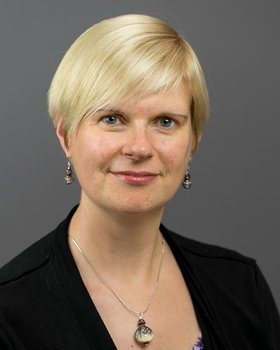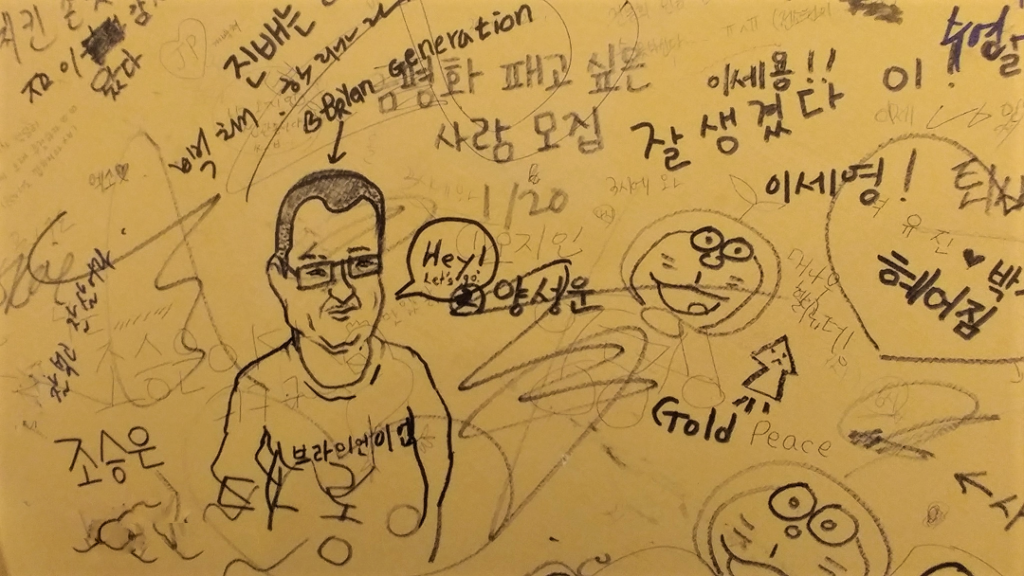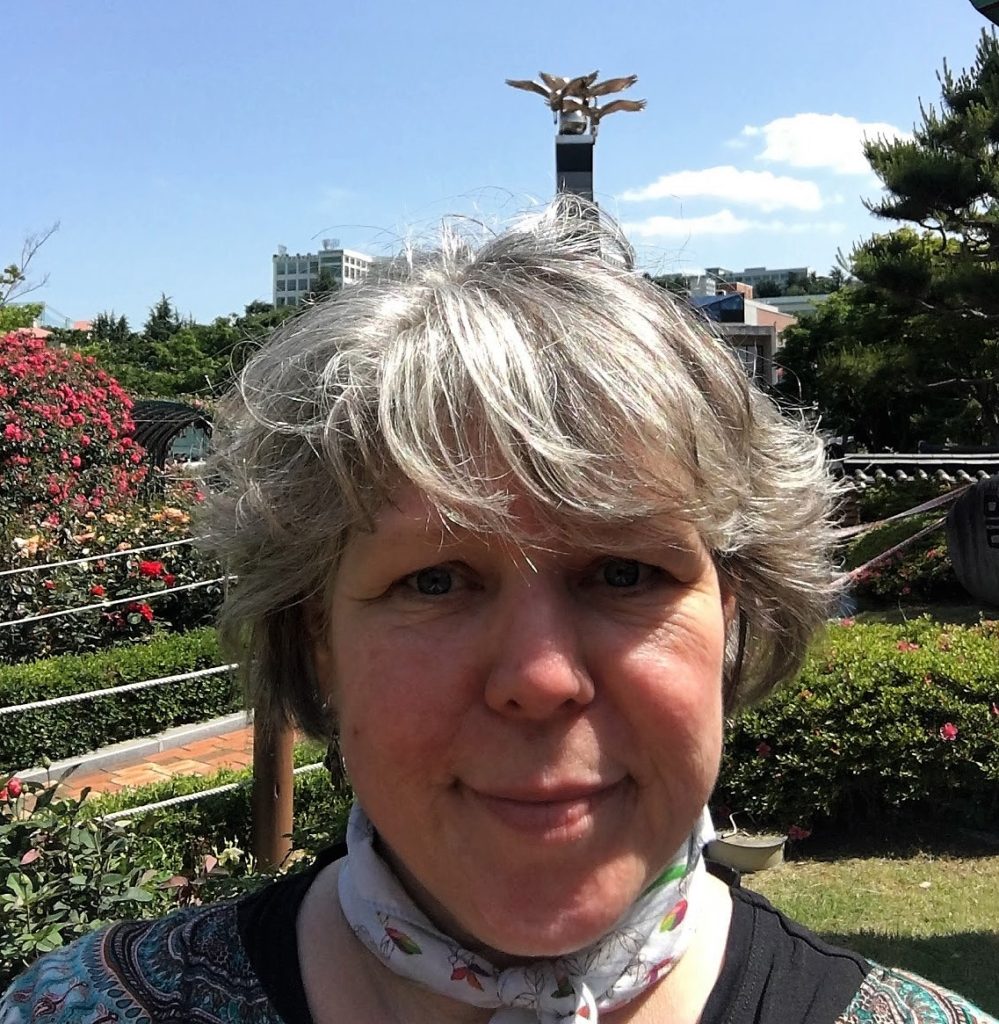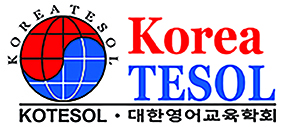The Challenges of Teaching
Edifications by Expat English Educators
Compiled by Dr. David E. Shaffer.
Every occupation is sure to have both gratifying and challenging aspects, but working in a distant land with a difficult language and a distinctively different culture can greatly add to the challenges of that occupation. The Gwangju News has selected four area expat English instructors, all members of Gwangju-Jeonnam KOTESOL, the local English teachers’ organization, to discover their leading likes and dislikes about teaching in Korea. In a recent issue (October 2020), we carried their joys of teaching in this column; in this issue, we bring you the challenges that these same expat English educators face. Their teaching contexts vary: from national and private universities to middle school and high school. Who they are and their accounts of their challenges in teaching follow. — Ed.
“Isn’t It Spicy?” No, and Please Stop Asking.

Lindsay Herron came to Korea fifteen years ago. After teaching at the high school level for three years, she moved to Gwangju National University of Education, where she teaches English and teaching methodology. Lindsay has master’s degrees in language education and cinema studies, and is completing her doctorate in education. She has just completed her presidency of Korea TESOL and is an officer of the Gwangju-Jeonnam Chapter. Here is her account of the downside of teaching English in Korea.
I absolutely love living and teaching in Korea, but that doesn’t mean life as a foreign teacher here is without drawbacks. Some – such as the prevalence of sweet (rather than savory) garlic bread, the lack of good brunch options, and the distance from family – have satisfactory work-arounds; others are more endemic and unavoidable, often with far-reaching implications.
Perhaps my biggest complaint regards the stereotypes I’ve encountered here. When I first arrived in Korea, it wasn’t uncommon to see articles, op-ed cartoons, and even “exposés” on TV that portrayed foreign teachers as lazy, drug-addled, devious sex maniacs. I’m delighted this kind of negative representation is rare these days, but it still seems as if foreign teachers are often considered less professional or less qualified than our Korean counterparts. There are other preconceptions, too, that routinely aggravate me. I frequently find myself explaining, with a tight smile, that it’s not uncommon for people to use chopsticks in other countries, or that Hangeul isn’t nearly as indecipherable as some Koreans seem to think. I find warnings about spice levels particularly rankling; I’m from New Mexico, and I’ve yet to encounter anything here that can compare to the eye-watering heat of good, fire-roasted Hatch green chile. And this doesn’t even begin to touch on the other forms of casual and systemic racism I’ve observed, though the country is slowly shifting toward more progressive perspectives.
In many ways, Korea is also becoming more welcoming to expats; I can now access more websites using my MacBook and non-IE web browsers, for example, and my phone contract is currently in my own name instead of a co-teacher’s, as was required when I first arrived in Korea. At the same time, though, I miss out on a lot of opportunities due to my one-year contract and E-2 visa. For example, I don’t have a credit card in this country despite having applied twice. The first time, I was refused because my salary was too low (as it probably always will be, since there’s a cap on the salaries of foreign instructors at national universities). The second time, we didn’t even make it to the salary stage; they turned me down the instant they saw I had an E-2 visa. Similarly, there are a variety of perks at my bank for which I’m not eligible due to my “short-term” status in the country; I’m not only losing money due to terrible exchange rates every time I transfer money home (to pay off my U.S.-based credit cards), but I’m also missing out on higher interest rates on long-term timed deposits that are inaccessible to me.

True, most of these problems are familiar to every expat in Korea. Perhaps you’re wondering, what about the negatives of being an expat teacher, since this is a teaching column? Honestly, there’s not much I dislike about teaching here and little I can’t work with – unless my students perpetuate a stereotype by disparaging a marginalized group or warning me about something “spicy.” Then all bets are off.
Grammar-Translation Remains Dominant

Bryan Hale has been teaching English in Korea since 2012 and has experience in both academies and public schools. He is now in his third year of teaching at Yeongam High School. Bryan has been active in Korea TESOL for most of his time in Korea and is currently completing his term as president of the Gwangju-Jeonnam Chapter of KOTESOL and beginning a term as KOTESOL’s national president. His master’s degree in applied linguistics (TESOL) is from the University of New England (Australia). Here is Bryan’s account of what he considers to be the challenges of teaching English in Korea.
A great challenge I’ve found teaching EFL at the secondary level in Korea is the prevalence of the grammar-translation method of teaching and suneung-style discrete-point testing, and the awkward fit this creates for “outsider” teachers with a responsibility to focus on communication. Grammar-translation teaching focuses on applying grammatical rules to drill-like exercises, which don’t have much of a relationship to authentic and purposeful communication. This style of teaching has obvious problems and most people, including most stakeholders in the Korean education system, acknowledge that it doesn’t do a good job of preparing learners to use language in real life.
The challenge is that, despite this widespread acknowledgement, grammar-translation remains dominant at the secondary level, and there’s a lack of explicit discussion about its problems or how more authentic communication-focused learning should fit in. I’ve known Korean English teachers who think that teaching “conversation class” simply involves selecting a topic and letting students take turns to monologue on it. There’s often an expectation that conversation classes will be a lot of fun, as though there’s no burden of real learning. Another assumption that sometimes exists is that there will be rote memorization of “key phrases” or pre-fabricated dialogues. Many secondary schools conduct speaking tests that merely test rote memorization. In my experience in both public schools and hagwons, there’s little clear, informed discussion of alternative teaching methodologies such as communicative language teaching (CLT). Unfortunately, there’s seldom clarity about what the purpose of English study is, or delineation between suneung-style test preparation and the development of communicative competence.
These factors point to a need for better-quality discussion between colleagues – and among whole learning communities – and that’s certainly been a challenge for me. Of course, an important factor here is my lack of Korean language skills, and it’s taken me some time just to get used to the ins and outs of Korean education enough to contribute to or initiate such discussions myself. I think all parties in such exchanges need to be ready to resist simplistic fixes, to have some comfort with ambiguity, and to seek sustainable changes.
Of course, I think it’s still possible to have success in helping learners to develop communicative competence! But, there are also challenges that manifest themselves at the level of the classroom and individual lessons. Learners are very often focused on accuracy, and this can make them hesitant to communicate spontaneously, or reluctant to let go of constant translation support. Helping learners overcome these habits is part of the job of teaching communicative English in a context like Korea, definitely. Nevertheless, I do sometimes feel frustrated about how much class time is spent coaxing learners away from the unhelpful attitudes encouraged by grammar-translation teaching.

A challenge that I find more rewarding is that of developing teaching practices that work for Korean learners. CLT was developed in Western countries and is sometimes criticized for being Anglo-centric and corporate language-oriented. Its emphasis on pair work and small-group work doesn’t always work well in Korean classrooms, where students are used to different kinds of social hierarchies. I’ve definitely found it necessary to re-examine some of the assumptions I brought to Korea from my CELTA training, and over time, I’ve really enjoyed figuring out activities and teaching methods that seem to stimulate spontaneity and creativity in Korean classrooms. I think my teaching involves a little bit more (benevolent) “teacher-frontedness,” and also more playfulness and acceptance of ambiguity, than it did in the beginning, and I’ve found that a rewarding journey.
Lack of Learner Investment: A Painful Facet

Maria Lisak has been teaching for nearly 24 years, and for much of that time, she has been teaching in Korea, including 15 years in Gwangju. She is presently teaching mainly content courses in the Department of Administrative Welfare at Chosun University, where she has worked since 2012. Maria holds a master’s degree in education and a second master’s in business administration. She is currently completing her doctorate of education and is a past president of Korea TESOL’s Gwangju-Jeonnam Chapter. Here is Maria’s account of the challenges she faces in teaching in Korea.
Things that are difficult in teaching in South Korea come from different aspects of my teaching adventure. Lack of learner investment in their own learning practice, test-taking culture, and English as a barrier to future opportunity all are painful facets that haunt my teaching experience.
One of the things that’s difficult is when my students don’t love learning as much as I do! Not only is teaching my job, but I continuously self-study and do professional development. I’m hoping all this learning will keep Alzheimer’s away! If my students aren’t invested in their own learning, it’s really hard to find new ways to motivate them. It’s hard to be caring when they don’t care, even though my students are adults and in charge of their own lives.
Another thing that bothers me about my South Korean context is when I have students who only want to check off the boxes or take the test. I feel they’ve been institutionalized by education, thinking of it as simply an exam that you need to pass. I don’t call that learning; I called that testing. I can understand my students being bored to death with some of the education that they’ve experienced. But it’s heartbreaking to make a lesson to welcome my students’ creativity, and all they want to know is what they need to do to make me happy and get their grade.
Another issue in South Korea that I have a lot of problems with is English as a gatekeeper to opportunity. My students have been studying English for years and usually can’t speak it. Or they don’t want to speak it because they don’t want to make a mistake in front of others. This type of stress and limitation inhibits the motivation to study and use English. My students are marginalized by English. Some of my students will never use English in their future job. But they might not even be able to get that job where they won’t use English unless they have enough English to make it through all of the job entrance exams and job interviews.
As a social justice educator, I believe that I teach students as people first. A lot of people think that I only teach language. If I only had to teach English language, I wouldn’t really have any teaching problems nor feel the pain that my students are going through. The pain of teaching English is often the socioeconomic context that I and my students need to work with and against. Learning English should be a new tool that empowers my students, not something that keeps them from reaching their dreams.
Communicative Competence: The Single Biggest Challenge

Jonathan Moffett came to Korea in 2016. After teaching for two years at the elementary school level, he now teaches at three different middle schools in Gwangju. Jonathan has a master’s degree in education from the University of Missouri and is a member of Korea TESOL. Here is his account of the problems that confront him in his teaching in Korea.
In the October issue, I was fortunate enough to be able to talk about many of the positive experiences I’ve had teaching in Korea. My focus for this month’s issue pertains to both the challenges and more negative aspects of teaching English in Korea. Certainly, there are many challenges we all face living in a foreign country, some more than others. Here I focus mainly on those challenges relating to education. From my time spent teaching in both public elementary schools and middle schools, I can confidently say that the kinds of challenges I’ve faced in each context are quite different.
At the elementary school level, one of my biggest challenges was getting students to use the target language successfully during games and activities. Often times, students would forget that the purpose of the activity was actually learning, though the learning may be facilitated by some fun activity. In this regard, sometimes I felt that I wasn’t always an educator but sometimes more of an entertainer. Middle school for me, however, has felt more or less completely opposite. Students at this stage are often “broken in” to be efficient studying machines, and the prospect of having fun in class through various communication-based activities seems to be quite foreign to them. The wonder and joy that elementary school kids showed was replaced with a curious combination of apathy and an urgent sense to study only that which will immediately benefit them.
The focus of my classes, as I believe native English-speaking teachers are best able to do, is on communicative aspects of English usage, especially pertaining to speaking. This aspect of English usage, however, doesn’t seem to be given much emphasis in consideration of how students display their proficiency and earn higher ranks in an incredibly competitive education environment. Thus, motivating students to take part in activities in which the central focus is on communicative competence can be quite difficult at times. There sometimes seems to be a void between how I believe myself best able to benefit and educate students, and what the educational system itself deems as important. Oftentimes, I am forced to adjust, change, or get rid of what I believe are the most beneficial teaching approaches, ideal activities, or meaningful learning experiences and substitute them with ones that the educational system deems more immediately applicable and/or important, and this itself is the single biggest challenge I find myself facing day in and day out.
When the day comes that more emphasis is placed on communicative competence at the national level through more than just the National Curriculum’s stated agenda, I believe this challenge will be ameliorated to quite a large extent. Until then, I try to keep every class both beneficial for students’ immediate goals, and meaningful for their long-term goals.
In Conclusion
From the opinions expressed above, we see that there is a wide variety of challenges facing expats teaching English in Korea and that what are considered the biggest challenges vary from person to person. Challenges in the classroom seem to center on the education system’s reliance on antiquated teaching methods that are not communicative in nature but are test-driven. Accordingly, it is difficult to get students to speak in class because they are not used to it and because they are not tested on it. The emphasis on English testing for advancement in society is perceived as an obstacle rather than an opportunity to many students, thus lowering motivation to learn.
Challenges to the expat teacher do not reside only in the classroom, as pointed out by Lindsay. Stereotypes still persist in which the foreigner teaching English is perceived as less professional and less qualified than their Korean counterparts. The expat is viewed as “different,” not being able to adjust to Korean culture, for example, not being able to learn Korean, to use chopsticks, or eat spicy foods.
Although the four contributors above have expressed numerous challenges to teaching and living in Korea (as they were asked to), they all have many positive things to say about teaching in Korea also (for this, see the October 2020 issue of the Gwangju News). Indeed, as Bryan relates, challenges themselves can be quite rewarding, as with the challenge of developing teaching materials and methods that are best suited for students and the teaching situation. For so many expat English teachers in Korea, yes, there are challenges, but they are outweighed by the joys and benefits of teaching and living in Korea – as evidenced by how long they are staying.
Photographs courtesy of Maria Lisak, Lindsay Herron, Bryan Hale, and Jonathan Moffett.
Gwangju-Jeonnam KOTESOL
UPCOMING EVENTS
Check the Chapter’s webpages and Facebook group periodically for updates on chapter events and online activities.
For full event details:
Website: http://koreatesol.org/gwangju
Facebook: Gwangju-Jeonnam KOTESOL
The Editor
David Shaffer is an expat educator who has many years of experience in the field of English education in Korea. He has experienced both the joys and challenges of teaching. As vice-president of the Gwangju-Jeonnam Chapter of KOTESOL, Dr. Shaffer invites you to participate in the teacher development workshops and their regular meetings (online and in-person). He is a past president of KOTESOL, and is currently the chairman of the board at the Gwangju International Center as well as editor-in-chief of the Gwangju News.




